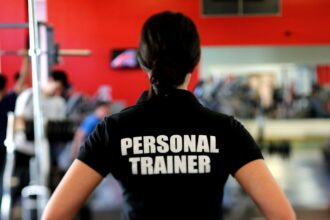You get employed and then suddenly find out that your cardiopulmonary resuscitation (CPR) certification isn’t accepted by your employer.
- What Employers Look for in a CPR Course Online
- Accreditation Matters
- Hands-on or Blended Training Options
- Content That Matches Job Requirements
- Verification and Renewal
- Are CPR Courses Enough?
- Advantages of Taking Online CPR Courses
- Learn at Your Own Pace
- Immediate Certification
- Up-to-Date Guidelines
- Cost-Effective and Accessible
- How to Choose the Right CPR Certification Provider?
- Check for Accreditation and Recognition
- Look for Employer Guarantee
- Blended Learning Availability
- Transparent Reviews and Student Support
- Choose A Credible CPR Course Now!
Sounds like a nightmare, right? Unfortunately, it’s more common than you think. In fact, several healthcare employers have rejected CPR certifications from unverified providers. This often leaves new hires struggling to get recertified.
If you do not want to be in the same category, the best thing to do is to enroll in a CPR course online recognized by accredited organizations. Let’s walk you through how to find the right one and why it matters.
What Employers Look for in a CPR Course Online
Not every CPR certification has the same credentials or curriculum, and employers in the United States know that. So, what do they do when reviewing a candidate’s CPR training? Most employers are primarily concerned with the credibility, compliance, and relevance of the course. A certification that doesn’t meet industry standards can quickly disqualify an otherwise strong applicant.
Meanwhile, here is what employers usually look for in an online CPR course:
Accreditation Matters
Most employers look for a credible CPR certification from nationally recognized organizations such as the American Heart Association (AHA) and the National Safety Council. These institutions follow standardized, research-backed protocols that meet legal and medical guidelines.
Hands-on or Blended Training Options
Most professionals consider fully online CPR courses to be convenient. However, a few employers also insist on practical skills demonstrations. A blended model, which includes online theory plus in-person skills assessment, is often viewed more favorably, especially in clinical or healthcare settings.
Content That Matches Job Requirements
Employers may expect CPR training to cover adult, child, and infant protocols along with automated external defibrillator (AED) usage. First aid training may also be bundled in or required separately for some roles, like teachers, fitness instructors, childcare workers, security personnel, and construction site supervisors.
Verification and Renewal
A valid certification should last one to two years. Moreover, employers often prefer courses that offer digital verification or instant certificate downloads with renewal reminders built in. Hence, it is always recommended to enroll in a CPR course that is valid for at least two years and offers a digital certificate.
Are CPR Courses Enough?
While CPR certification is a great starting point, it is the primary foundation for several professions. Employers often look for such qualifications that ensure a candidate is ready for emergency scenarios beyond basic resuscitation. On that note, the following points highlight the importance of CPR courses online in detail:
Basic Life Support (BLS) for Healthcare Professionals
CPR is mandatory, especially if you are entering the healthcare field, such as nursing, EMT, or dental assisting. According to a study by the National Library of Medicine, 96% of physicians and nurses in the U.S. expressed their confidence in CPR when trying to save a dying person. That is why over 96.8% have already received formal training in this field.
So, an additional CPR course allows these professionals to learn high-quality chest compressions, team dynamics, and advanced resuscitation procedures.
First Aid Certification
First aid basics are not enough for training professionals in industries like childcare, hospitality, or construction. Their training becomes complete only when a CPR certification course is added. This is beneficial if the workers are employed by companies that expect a broader skill set. It often includes wound care, managing choking, treating burns, or handling allergic reactions.
Advantages of Taking Online CPR Courses
Online CPR courses have grown in popularity because of their accessibility and practicality. If you are a student, full-time worker, or caregiver, learning CPR online can be both time-saving and effective for you. Here are the advantages of the course that aims to meet professional standards.
Learn at Your Own Pace
Unlike traditional classroom settings, online CPR courses allow learners to study at their convenience. Working professionals and students can balance their training quickly with other commitments.
Immediate Certification
Reputable online platforms often offer instant digital certification upon passing the course, which is ideal if you are under a tight employment deadline or need to renew urgently.
Up-to-Date Guidelines
Several platforms offer quality online courses and update their content to reflect changes. These alterations are usually suggested by reputed organizations in the United States. This ensures your training complies with current practices.
Cost-Effective and Accessible
Online CPR training is often more affordable than in-person classes and eliminates the need for travel. This makes the training courses ideal for those in remote areas or with limited access to certified centres.
How to Choose the Right CPR Certification Provider?
Choosing a CPR course is all about making sure your certification will be recognized, respected, and deemed satisfactory by employers in the U.S. and worldwide. Here’s what you can evaluate accurately before you enroll.
Check for Accreditation and Recognition
Always verify that the provider is aligned with nationally recognized organizations such as the AHA. Some employers will explicitly state that they do not accept CPR training from unaccredited platforms. Make sure to list down the names of the blocklisted organizations.
Look for Employer Guarantee
Some trustworthy providers offer a “100% Employer Acceptance Guarantee”. This provides you with a useful safety net in case your certificate isn’t recognized by an employer in the future. This shows confidence in their program’s legitimacy.
Blended Learning Availability
If your employer requires hands-on training, make sure to search for providers that offer blended learning. It means their curriculum combines online theory with an in-person skills check. Many certification platforms also partner with local centers to offer this special requirement.
Transparent Reviews and Student Support
You can always recognize a reputable provider through positive reviews and responsive support. So, why not check for the testimonials online? Many also have a team of professionals to assist you with certificate verification if needed.
Choose A Credible CPR Course Now!
Don’t let a lack of certification cost you a job opportunity. While there are many online CPR courses available today, make sure to choose the one that equips you with life-saving skills. The right CPR course should also hold value in the eyes of potential employers.
By selecting a certified and accredited online CPR course, you can easily earn your certificate. This allows you to make yourself more employable, compliant, and confident. Hence, make sure to look for a CPR course online that’s a nationally recognized course that offers flexible learning options and provides immediate, verifiable certification.















